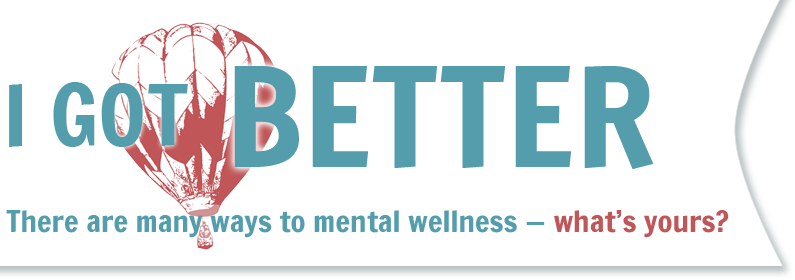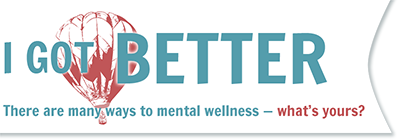I Will Move Toward What I Want
By Diana
During your mental health care, have you often felt hopeless about your chance of getting better?
Yes. At the beginning there were providers who said that I would always be mentally ill, have a diagnosis and would need to take medications for the rest of my life.
During your mental health care, have you often felt hopeful about your chance of getting better?
Yes. It was when I switched to another program in a different county that I began to have people in my life who believed in recovery and hope.
Has a mental health provider ever told you that you could reach a personal goal despite your psychiatric diagnosis (for example, education, career, independent housing, relationship, children, etc.)?
Yes. I had a therapist and case manager who believed I would get my children back and that I would be able to work again.
Has a mental health provider ever told you that you could not reach a personal goal because of your psychiatric diagnosis (for example, education, career, independent housing, relationship, children, etc.)?
Yes. Again, at the onset before I switched to another county, they, the clinician and hospital, told me I would never work again and would never have my children back.
If you overcame hopelessness that you could get better from a mental health or emotional problem, was there a turning point for you?
The turning point was a therapist and a small group of people at the intensive day treatment program I went to. Up to that point medication was the all in all, and as I stated before, I had no emotions or feelings at all. In this small group someone was talking about something and one tear escaped. The therapist noticed that one tear and instead of asking me why or drawing attention to the tear she asked me “what are you feeling right now?”. This was the start of my journey into the impact that childhood trauma had on my life, the beginning of understanding myself and believing in recovery and hope.
Tell us what recovery means to you. How would you define recovery from mental health or emotional problems in your own words?
For me recovery means understanding myself and what brought me to a place of brokenness. Recovery is healing from the things that have caused so much pain that I thought I couldn’t survive. It is a place of acceptance of all things in my past and acceptance of hope for my future. Recovery means I will move toward what I want, whether it be physical, spiritual or emotional, in a way that accepts there will be good moments and not so good moments.
If you could send a brief message to someone receiving mental health care today who is feeling hopeless about getting better, what would you say?
I would say that the first step is accepting where you are at this very moment. This is your starting point. If at this point you feel you have no hope, that’s okay, because that is where you are right now. Then I would ask them what made them smile today, what caused them to chuckle, what drew their interest when nothing else did. And I would encourage them to start from that place.
Can you give examples showing you have gotten better from a mental or emotional problem, such as how you are doing well or accomplishing goals you have chosen?
I’ve been working full time since last year. I’ve learned to be patient with myself and accept that there are ups and downs even on the good days. I take care of myself, pay attention to my needs and drink a lot of water. And I continue to work on past trauma issues, identifying how they impact my life now. I use WRAP (Wellness Recovery Action Plan) to help me in day to day living, long term goals and showing others how they can have recovery and hope also.

